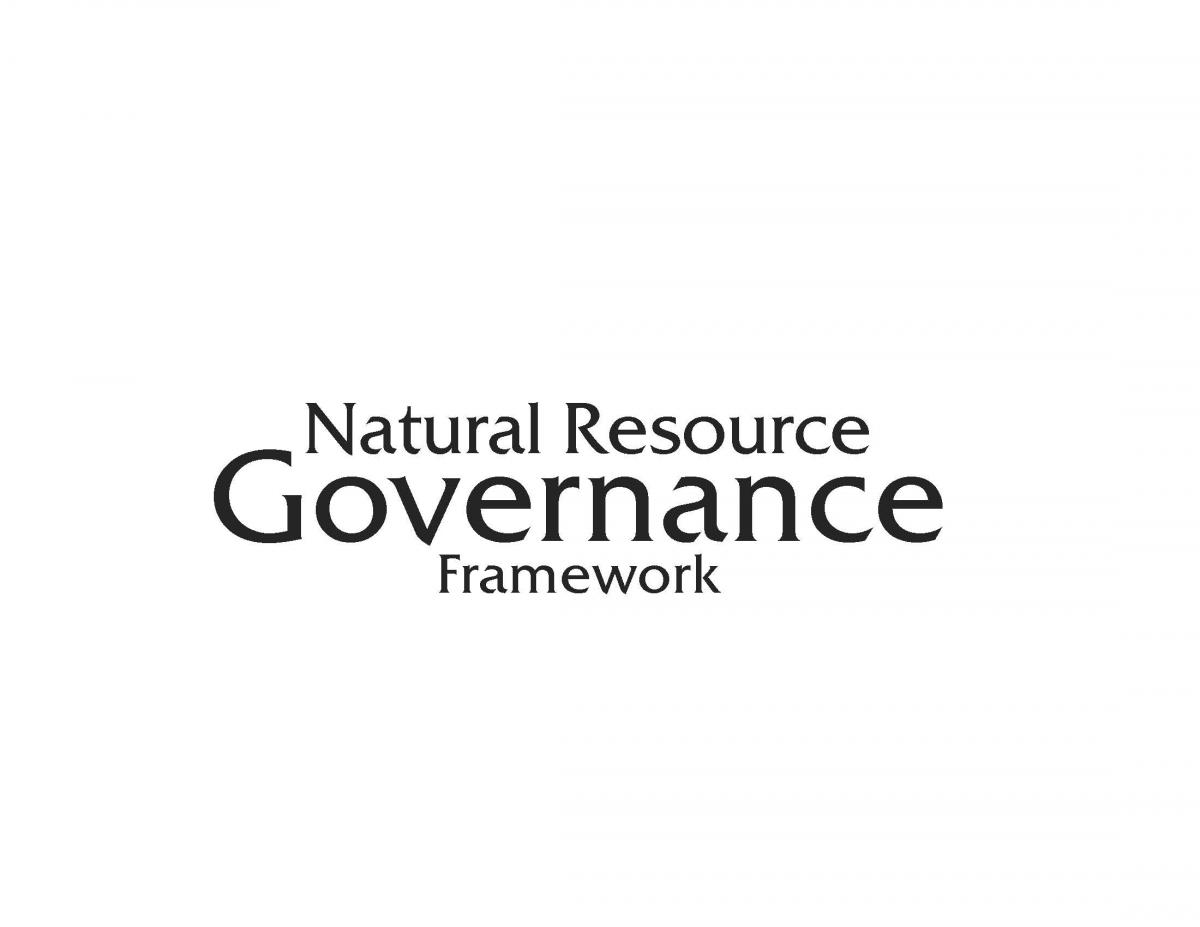Natural Resource Governance Framework successfully completes first phase of work
CEESP News - By Jenny Springer, Chair, CEESP Theme on Governance, Equity and Rights
The Natural Resource Governance Framework (NRGF) knowledge basket wrapped up its first phase of work in December 2016 with a robust set of results and products, which lay a foundation for a next phase of work in the 2017-2020 program period.

Photo: IUCN-CEESP
The Natural Resource Governance Framework (NRGF) was created for the purpose of providing a robust, inclusive, and credible approach to assessing and strengthening natural resource governance, at multiple levels and in diverse contexts. The NRGF is hosted by the IUCN Commission on Environmental, Economic and Social Policy (CEESP), working in close collaboration with the IUCN Secretariat and partners across the Union.
The overarching goal of NRGF is to set standards and guidance for decision-makers at all levels to make better and more just decisions on the use of natural resources and the distribution of nature’s benefits, following good governance principles, such that improved governance will enhance the contributions of ecosystems and biodiversity to equity and sustainability.
Towards this goal, work in the first phase of NRGF has spanned several interrelated lines of work. One line of work has focused on the design of an integrative Framework of principles, criteria and indicators that can be used to assess the status of natural resource governance in multiple contexts. A Framework design working paper identifies key principles for effective and equitable natural resource governance and outlines approaches to the further development of criteria and indicators. An accompanying working Guide provides guidance on the process for conducting assessments using the Framework, along with methodologies and sources of information. A first set of papers focusing on specific principles provides more in-depth resources on relevant standards and practical considerations for implementation.
Dialogues and scoping analysis in three regions – Mesoamerica, East and Southern Africa, and Asia – have engaged local partners and explored key regional resource governance issues. In Mesoamerica, NRGF supported a series of dialogue workshops, the preparation of three case studies on indigenous governance of protected and conserved areas, and guidelines for conservation actors on the rights of indigenous peoples. A scoping paper for the East and Southern Africa region synthesized results from NRGF meetings and findings from the literature to highlight key issues constraining effective natural resource governance in the region. An Asia workshop held in December 2016 brought together partners and experts to share experience across field projects and review proposed NRGF principles. Regional scoping activities have fed back into the design of the NRG Framework and Guide from local experience.
To better understand and build on existing governance-related work within IUCN, NRGF conducted a survey of IUCN programs and commissions. The resulting report summarizes the main governance-related projects of thematic and regional programs and commissions, analyses main types of work, and discusses challenges, lessons, and future support needs. An NRGF Knowledge Hub session at the World Conservation Congress provided another opportunity to engage with IUCN staff, member representatives, and commission members, and gather inputs to NRGF’s conceptual and regional work.
Framework papers and regional scoping reports are available on the NRGF website. Comments and feedback are welcome to further develop working papers and inform the development of activities in the next phase of NRGF’s work.
Main priorities identified for NRGF in the new program period (2017-2020) are to complete the full assessment Framework, guidance, and accompanying technical resources; support interested partners to conduct pilot NRGF assessments and use the results to design activities to strengthen NRG governance; continue to build links and strengthen approaches to natural resource governance across IUCN programs; reach out more broadly to IUCN Members for learning, exchange and capacity-building on natural resource governance; and support the development of innovative regional and global governance projects.
